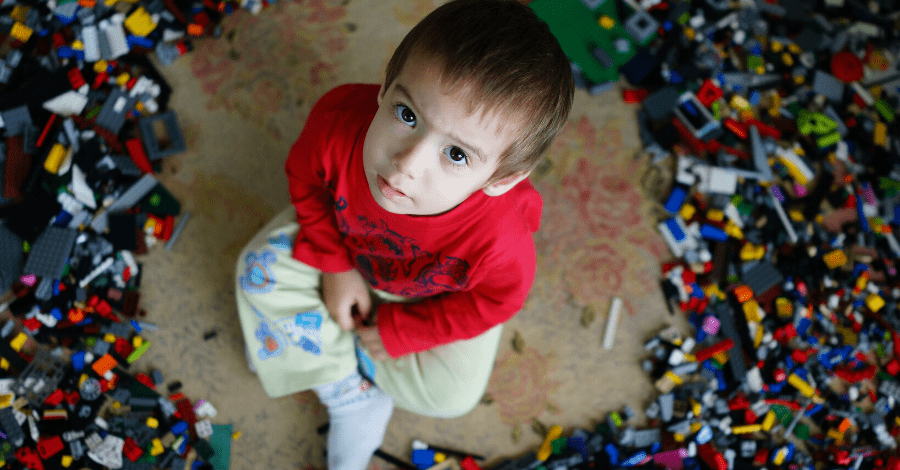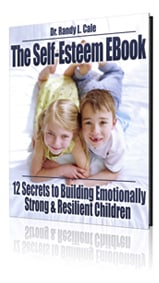Most parents are seeking help with changing a specific behavior, or set of behavior problems. This is understandable, as the manifestation of problems inside the brain show up as outside problems. Angry thoughts bring angry behavior. Depression brings detached, grumpy and irritable behavior.
The list could go on, but the idea is simple: What we see on the outside is obviously a reflection of the inside. (Duh…right?)
So why are we discussing this obvious fact? Because most of us rush to fix the manifestation of an inside problem, with a push to almost instantly fix the child’s outside problem. This results in a pressured moment, where we try to control the uncontrollable…and then this moment spirals out of control. We try to exert force over the child or that moment, when we have not developed the leverage (or power) to bring about real change as a parent.
This is a mistake. For many challenging children, those with ADHD or even just the temperamentally strong-willed child, such an approach will fail. The problem here begins not only with a failed parenting strategy, but with a false understanding of where change must begin.
The Inside Game vs. The Outside Game
In parenting, as well as life, we must come to accept the importance of mastery with both the inside game of life and the outside game of effective action in life.
The Inside Game is about your own personal psychology, and where your head is at. This ‘inside game’ is either run automatically through the programming and habits (good and bad) that you acquired unintentionally, or you realize that this programming is changeable through your own effort and awareness. And at that point, you begin the lifelong process of learning to run your own brain, rather than having it run you.
The Outside Game is about habits, and daily actions. This is where the ‘rubber meets the road’ in life, and determines our life gives back to us the fruits of our efforts. In other words, our happiness, success and satisfaction flow from these actions and the consequences of these actions.
Thus, this piece is hugely significant, but for most of us these daily habits are based upon our childhood, our life experiences and good or bad luck/circumstances. We have done little to manage these habits on our own. Some usually serve us well, while others do not.
As it relates to parenting, the outside game determines your discipline program, your daily routines and how you handle problem behavior. This is what everyone seeks in terms of the ‘magic bullet’ that will fix the problem behaviors, or get kids back on track.
And yet, to effectively change the challenging behavior, few parents are able to convincingly implement the correct parenting strategy (i.e., outside game) without first addressing the inside game.
Developing Leadership: The Inside Game of Parenting
There are two main decisions that you want to consider, before addressing the specific parenting strategies that will help you turn things around in your home. These involve the tools of parental leadership.
Decision One: Accept or Resist the Moment (In Front of You)
Often, your child’s actions have led to frustration, anger or embarrassment. You understandable feel a strong reaction, and begin to ‘lean into’ the moment. These strong emotions produce that tendency to lean into the behavior. We might call it reactive.
There’s an old saying: That which you resist…persists. In other words, if we rail against the moment in front of us, we are almost always in reaction mode. And this is rarely useful.
Why? Because when we react, we tend to ignore the importance of the second decision that will shape your parenting destiny (and your child’s future).
Decision Two: Fix the Moment, or Teach from The Moment.
When we try to fix a problem moment, everything goes awry. We usually do not see how we can teach in that moment, as we aren’t really interested in teaching. We are interested in eliminating that frustration or anger or embarrassment we feel.
Oh, we can proclaim that it’s their behavior we want to fix, but really (being honest) it’s the emotion we feel, our reactions, that we want to fix or change. This is why gaining mastery over our reactive emotions can lead to an acceptance of the moments that is in front of you. We don’t have to resist it.
But please understand… we CAN and WILL teach from that moment. If the behavior is not healthy, we are not going to pretend that it will just disappear. This is where the outside game begins. Next week, I will address the outside game, and where to start.
For now, notice what happens this week when you abandon trying to fix the ‘bad’ moments. Walk away, stay calm and if you do anything…simply be more prepared. Get up earlier. Be ready in advance. Target getting out the door 15″ early, so you can demonstrate your patience. All these will serve you as you begin to consider how we can teach from the moment. This is the foundation to build leadership. It is just that, so do not expect more. But we must have a strong foundation to build strong leadership.















